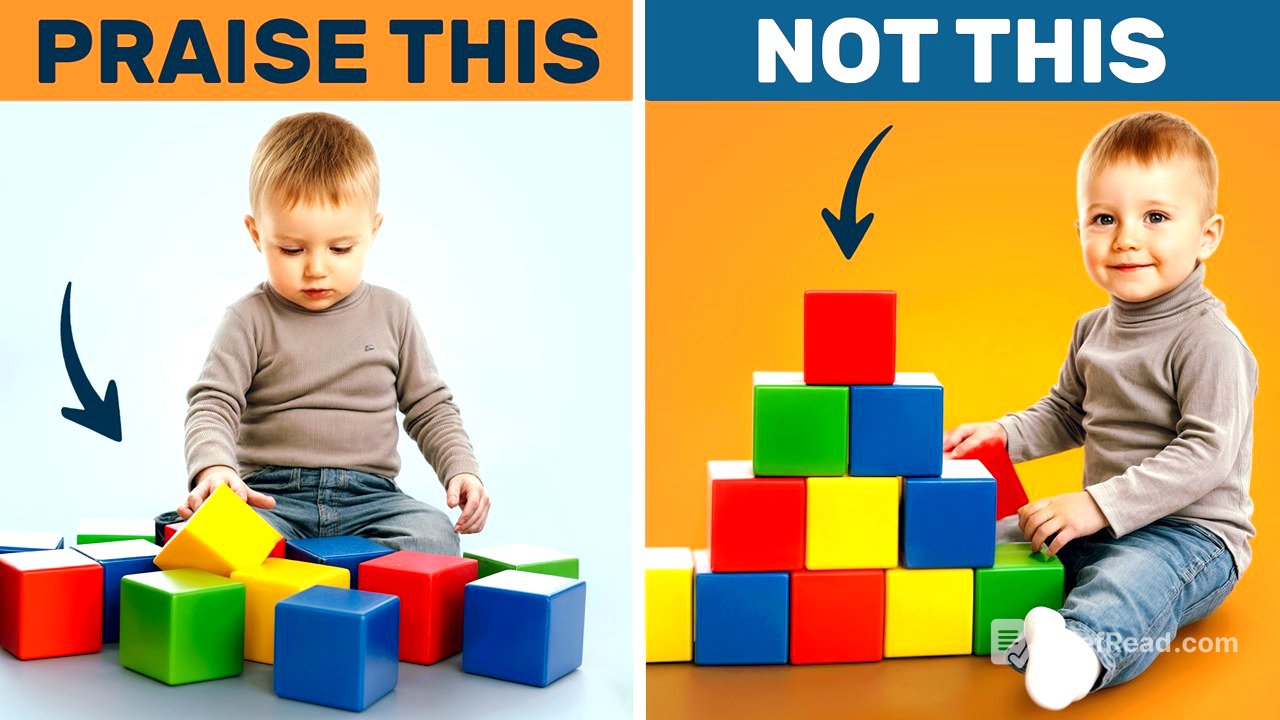TLDR;
This video reveals 13 essential secrets about toddlers (children under three) that pediatricians and early childhood experts understand, yet parents are often not informed about. Knowing these secrets can transform the challenging toddler years into enjoyable ones. The video covers topics such as understanding toddlers' emotional regulation, reframing tantrums, the importance of repetition, effective communication techniques, the impact of praise, the significance of consistent routines and modeling behavior, allowing children to struggle, managing choices, and helping toddlers with transitions.
- Toddlers' brains are not fully developed to control big feelings.
- Tantrums are cries for help, not manipulation.
- Repetition is key to learning.
- Tell toddlers what to do, not what not to do.
- Praise effort, not intelligence.
- Hunger can significantly impact behavior.
- Consistency and predictable routines are crucial.
- Toddlers learn by observing and modeling behavior.
- Allow toddlers to struggle to foster independence.
- Avoid overwhelming toddlers with too many choices.
- Help toddlers transition smoothly by creating clear endings to activities.
Your Toddler Literally Can't Control Their Big Feelings Yet [1:45]
The prefrontal cortex, which controls emotions, isn't fully developed in toddlers and won't be until they are around 25 years old. Meanwhile, the amygdala, which triggers big feelings, is active from birth. When toddlers become upset, their brain goes into survival mode, shutting down the thinking part. Reasoning with them during a tantrum is ineffective. Instead, get to their eye level, acknowledge their feelings, and offer a calming presence to help them regulate their emotions. Once they are calm, you can then explain or help them understand what happened.
Tantrums Aren't Manipulation - They're Cries for Help [2:51]
Tantrums are not attempts to manipulate but rather cries for help because toddlers lack the skills to manage their feelings. Instead of viewing tantrums as defiance, consider what skills the child needs to learn. For instance, if a toddler hits their brother for taking a toy, teach them to use words instead of hitting. Provide them with the language to express their anger, such as "Tell Sam, stop Sam, I'm playing with that," and help them resolve the situation peacefully.
You'll Repeat Yourself a Thousand Times (That's Normal) [3:46]
Toddlers' brains absorb information slowly and require repeated exposure before it sticks. Constant repetition is necessary for them to learn new behaviors. Each time you calmly repeat instructions, you are helping your child's brain learn and build skills. Celebrate small victories to reinforce that the repetition is effective.
Tell Them What TO Do, Not What NOT to Do [5:00]
Telling toddlers what not to do can be confusing because they don't know the alternative action. Instead, provide clear instructions on what you want them to do. For example, instead of saying "Don't run," say "Walking feet inside." This gives them a clear picture of the desired behavior and makes them more likely to comply.
Count to 10 Before You Repeat Yourself [5:51]
Toddlers need time to process instructions, understand their meaning, figure out how to act, and then physically respond. After giving an instruction, count to 10 in your head to give them time to process and respond. This extra time can significantly improve their compliance.
Praise Their Effort, Not Their Intelligence [6:56]
Praising children for being "smart" can lead them to believe their abilities are fixed, causing them to avoid challenges to protect that label. Instead, praise their effort, strategy, and persistence. For example, say "You listened and put every block in the box" or "You kept trying even when it was tricky." This builds a growth mindset, teaching them that success comes from effort and hard work.
Hunger Hijacks Good Behaviour Every Time [7:33]
Toddlers need to eat every two to three hours due to their rapid growth. Ensure they have five meals a day: breakfast, morning tea, lunch, afternoon tea, and dinner. If their behavior suddenly deteriorates, check the clock and offer them food, as hunger is often the cause of behavioral issues.
Mixed Messages Create Anxious, Testing Toddlers [9:05]
Inconsistent rules and responses from different caregivers can create confusion and encourage testing behavior in toddlers. When rules are negotiable, they will constantly test boundaries to see what they can get away with. Consistency among all caregivers helps children feel secure and cooperative because they know what to expect. Caregivers should align on main non-negotiables, such as how to handle hitting, tantrums, and bedtime routines.
Predictable Routines = Confident Toddlers [10:05]
Consistent routines provide toddlers with a sense of security and control. When they know what to expect each day, they feel safe and can relax. Maintain a consistent order of activities, such as waking up, having breakfast, brushing teeth, getting dressed, and then playing. When changes are necessary, give them a heads up to help them prepare.
You're Their Most Important Teacher [11:19]
Toddlers learn by observing and copying your behavior. They notice how you respond to problems, talk to people, and react when upset. Model the behavior you want to see from them. If you want them to be patient, show them patience. When you make a mistake, use it as a teaching moment by apologizing and explaining how you will try to do better next time.
Let Them Struggle [12:31]
Allowing children to struggle is crucial for their development. The struggle itself is where real learning happens. When they finally succeed after trying, they gain confidence and feel capable of taking on new challenges. Give them a moment to try before stepping in to help. If they ask for help, guide them through it rather than doing it for them.
Too Many Choices Are Overwhelming [13:21]
Too many choices can overwhelm a toddler's developing brain, leading to frustration and tantrums. Keep it simple by offering only two choices. For example, instead of asking "What do you want to eat?" ask "Do you want a banana or an apple?" This gives them the power to choose without overwhelming them.
They Live in the Moment [13:21]
Toddlers are fully present in whatever they are doing and lack a sense of time. Suddenly announcing it's time to go can be jarring for them. Help them prepare for transitions by creating clear endings to activities.









